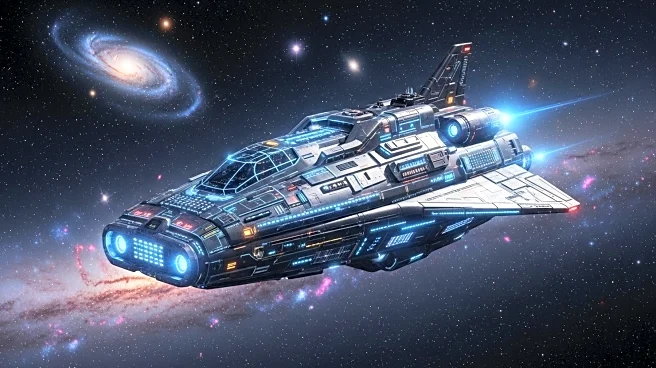What's Happening?
The concept of Voyager 1 being equipped with artificial intelligence (AI) is explored, suggesting that such technology could transform the spacecraft into an independent explorer capable of making real-time decisions. This hypothetical scenario posits that AI could enable Voyager 1 to autonomously adjust its instruments to capture unexpected events like storms or volcanic eruptions, which human operators might not coordinate quickly enough. The idea underscores the potential for future spacecraft to not only carry human messages to the stars but also to think, adapt, and interact with alien environments in ways that current technology does not allow.
Why It's Important?
Integrating AI into space exploration could significantly enhance the capabilities of spacecraft, allowing them to operate more autonomously and efficiently. This advancement could lead to more discoveries and a deeper understanding of the universe, as AI-driven probes could respond to environmental changes and phenomena without waiting for instructions from Earth. Such technology could revolutionize the way humanity explores space, potentially leading to breakthroughs in understanding distant planets and celestial events. The ability for spacecraft to adapt and make decisions independently could also reduce mission costs and increase the longevity and success of space missions.
What's Next?
While the article does not specify immediate next steps, the concept suggests a future where AI could be integrated into new spacecraft designs. This could involve developing AI systems capable of handling the complexities of space environments and ensuring they can operate reliably over long durations. Stakeholders in the space industry, including NASA and private companies, may explore the feasibility of such technology, potentially leading to new missions that leverage AI for enhanced exploration capabilities.
Beyond the Headlines
The integration of AI into space exploration raises ethical and technical questions about the autonomy of machines and their role in scientific discovery. It challenges the traditional model of human-led exploration and could lead to discussions about the balance between human oversight and machine independence. Additionally, the development of AI for space missions could drive advancements in AI technology more broadly, influencing other sectors such as robotics and data analysis.











